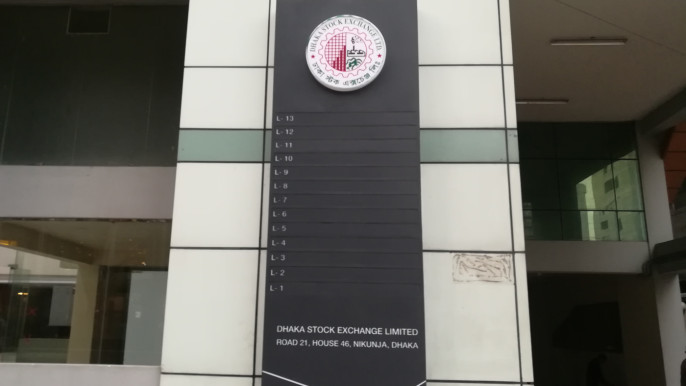Increasing calls from investors to suspend stock trading – to halt the market’s free-fall amid coronavirus fears – has led the Dhaka Stock Exchange to shorten trading time by an hour.
Investors and analysts said the move could heavily impact the market as more investors would face forced sales of their shares.
“Reducing trading hours from four to three is a ridiculous decision, as three minutes are enough to pull the market down,” said a merchant banker, on condition of anonymity.
The Philippines shut its market two days ago. Trading at many other markets, such as in Sri Lanka and Jordan, were paused to prevent further slumps. However, the DSE is moving very slowly – as if they want to see how far the market can decline.
Investors have already lost around Tk80,000 crore in the last 20 working days since February 19. DSEX, the main index of the DSE, dropped to 3,603 points from 4,758 points in just 30 days. The market has been losing five percent or more, each session, for the last few days.
Still, the DSE board of directors could not agree to shut the market, at least for a temporary period.
“Panic sales are over, now investors are facing forced sales of their shares,” said another merchant banker, who also preferred to remain anonymous.
According to market insiders, around one-fourth of sell orders in the latest round of sell-offs this month were from margin accounts under forced selling attempts. It may surpass fifty percent of daily sell orders if the market is not suspended until the situation improves.
“Please quarantine the market immediately, or at least the investment accounts with margin loans,” said a chartered financial analyst working for a top brokerage firm at the Dhaka Stock Exchange.
Some markets across the globe, with advanced trading mechanisms, are occasionally halting trade as the indices hit the bottom of circuit breakers. Markets in the USA, Brazil, Kuwait, Pakistan and many other countries can be such case studies.
Regulators made those moves to let investors come to a stable mind and make well thought-out decisions.
Capital market investors met Dhaka Stock Exchange officials this week to convey their request to halt market trading for two weeks. The exchange is empowered to decide on this matter, but it has yet to do this because there was no verbal green light from the securities regulator or the finance ministry.
However, as the DSEX already fell nearly 20 percent, in March alone, the DSE Board shortened the trading time at a meeting on Wednesday.
Responding to a query, DSE Director Rakibur Rahman said, “To handle the coronavirus pandemic, we have cut down the trading time by one hour. Any news about the suspension of trading is just a rumour.”
The DSEX closed at 3,603 on Wednesday, its lowest level since May 13, 2013.
Forced sales: The current evil
Speaking to The Business Standard after trading hours on Wednesday, members of a brokerage research team said just like the society, the stock market also needs to be quarantined. If trading is not stopped right now, nothing will work later to avert further devastation.
A team member, who is pursuing Chartered Market Technician (CMT) certification, said, “The DSEX might have strong psychological support at the 3,500 level, where investors tend to put in more buy orders with the hope of a turnaround.
“If forced selling continues, the DSEX might go as low as 3,100.”
The CMT is the world’s most prestigious charter for analysis of market behavior.
Investors, who bought shares with money borrowed from a broker or any other lender, are under pressure to add money to investment accounts to maintain mandatory equity levels.
Currently, very few investors are in a financial situation to inject fresh capital into the accounts.
As the prices are dropping, investors’ own equity is eroding and the brokers are selling off remaining securities to secure the recovery of the money they lent.
There has been great debate on the justification of forced selling by brokers.
In 2011 and 2012 – during the post-crash days – brokers and investment banks were ordered not to forcefully sell investors’ holdings. The policy makers’ emotional stance, based on political instructions, later proved wrong as the market declined over the years.
The same investors sunk into further liabilities, individually, and the investment industry is stuck with a huge loan portfolio they have yet to recover.
The market is in need of an opportunity to turn around, and for that, forced selling must be stopped, brokerage research team members said.
If there is any mechanism to quarantine the leveraged investment accounts, it may be possible to at least stop a further slide, they said.
They remain optimistic as there is a collective declaration from the banking sector to buy shares gradually – plus the finance ministry and regulators announced they will monitor the updates.
Source: TBSNews.net










